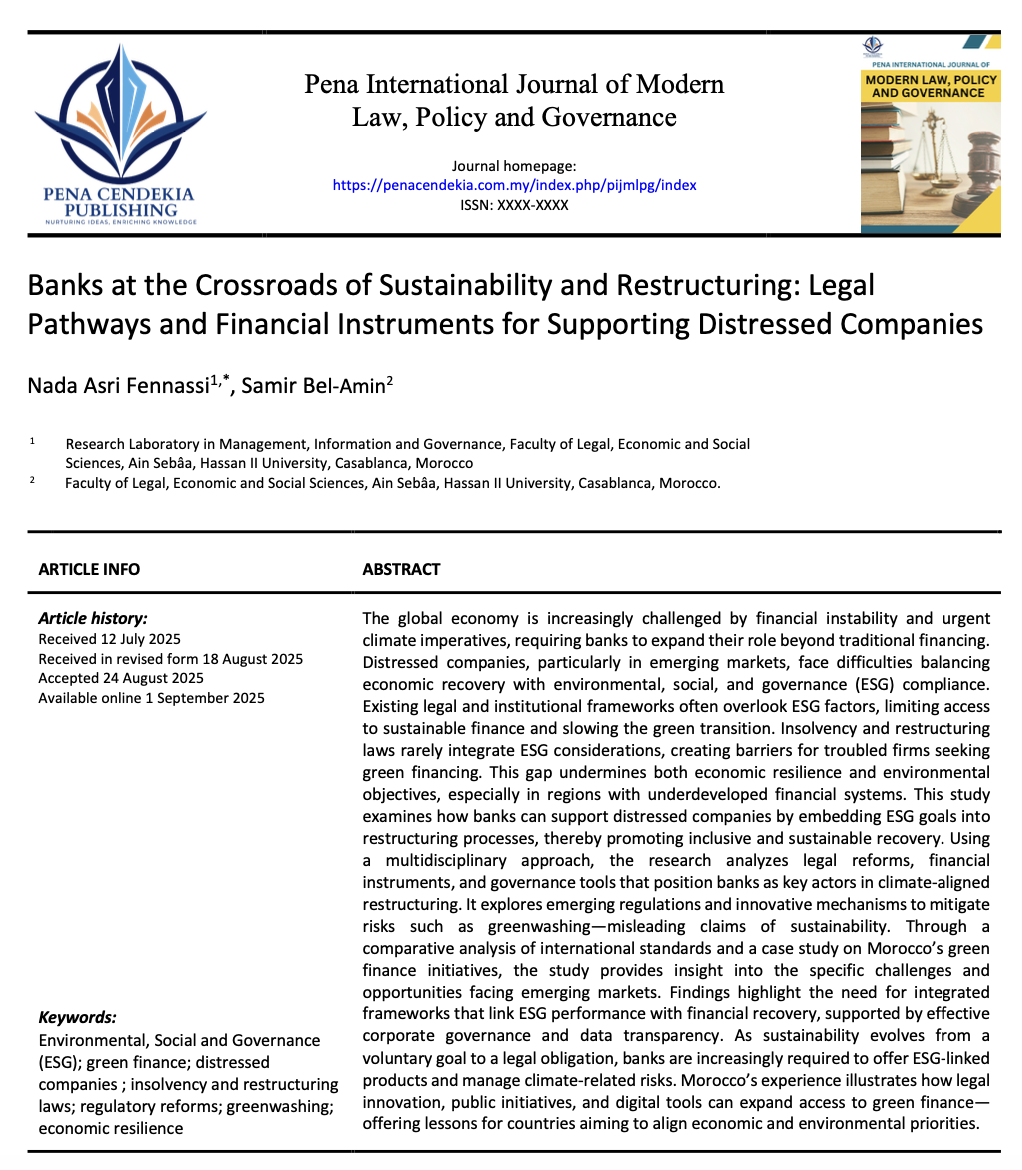Banks at the Crossroads of Sustainability and Restructuring: Legal Pathways and Financial Instruments for Supporting Distressed Companies
Keywords:
Environmental, Social and Governance (ESG), green finance, distressed companies, insolvency and restructuring laws, regulatory reforms, greenwashing, economic resilienceAbstract
The global economy is increasingly challenged by financial instability and urgent climate imperatives, requiring banks to expand their role beyond traditional financing. Distressed companies, particularly in emerging markets, face difficulties balancing economic recovery with environmental, social, and governance (ESG) compliance. Existing legal and institutional frameworks often overlook ESG factors, limiting access to sustainable finance and slowing the green transition. Insolvency and restructuring laws rarely integrate ESG considerations, creating barriers for troubled firms seeking green financing. This gap undermines both economic resilience and environmental objectives, especially in regions with underdeveloped financial systems. This study examines how banks can support distressed companies by embedding ESG goals into restructuring processes, thereby promoting inclusive and sustainable recovery. Using a multidisciplinary approach, the research analyzes legal reforms, financial instruments, and governance tools that position banks as key actors in climate-aligned restructuring. It explores emerging regulations and innovative mechanisms to mitigate risks such as greenwashing—misleading claims of sustainability. Through a comparative analysis of international standards and a case study on Morocco’s green finance initiatives, the study provides insight into the specific challenges and opportunities facing emerging markets. Findings highlight the need for integrated frameworks that link ESG performance with financial recovery, supported by effective corporate governance and data transparency. As sustainability evolves from a voluntary goal to a legal obligation, banks are increasingly required to offer ESG-linked products and manage climate-related risks. Morocco’s experience illustrates how legal innovation, public initiatives, and digital tools can expand access to green finance—offering lessons for countries aiming to align economic and environmental priorities.









